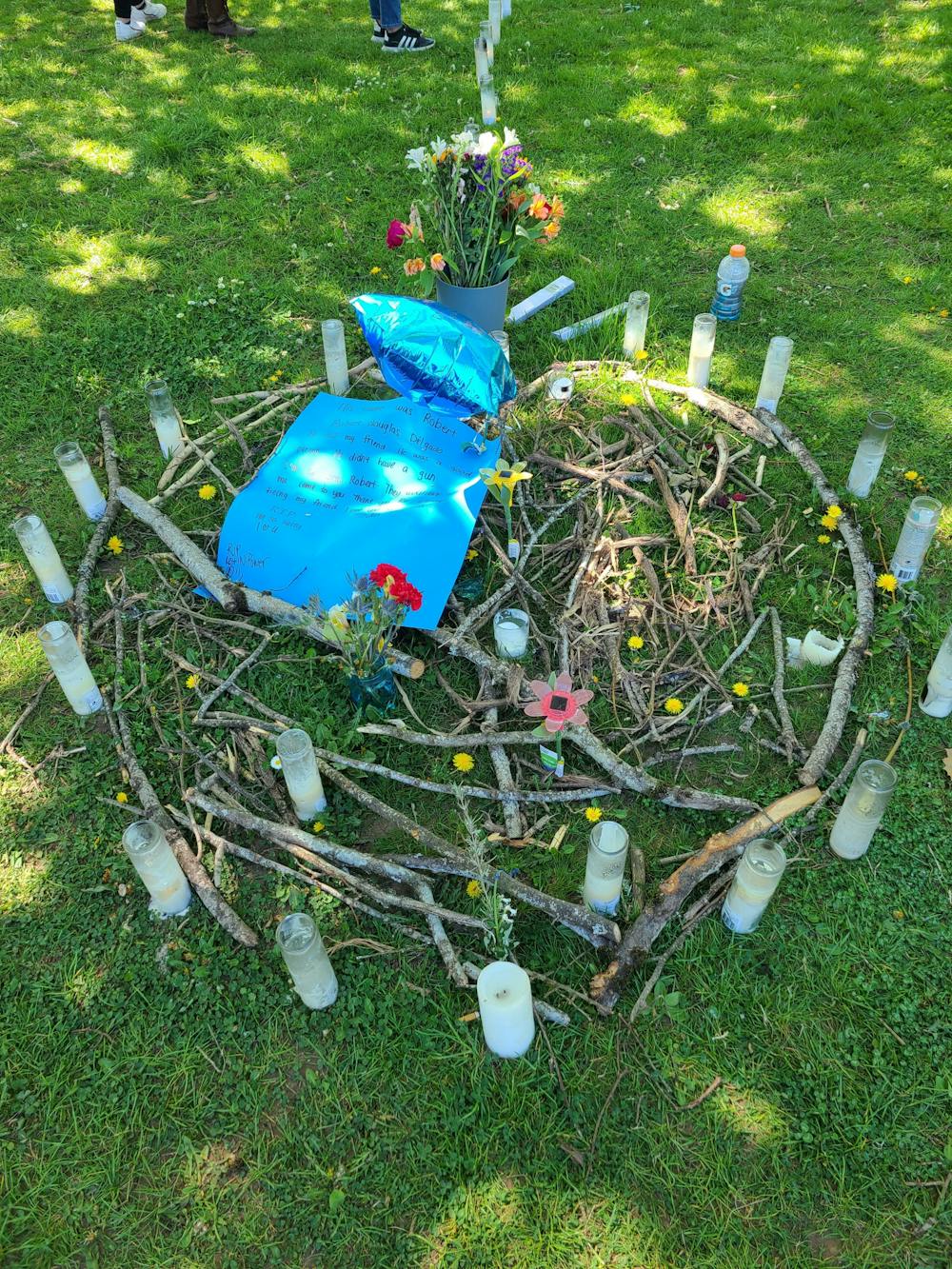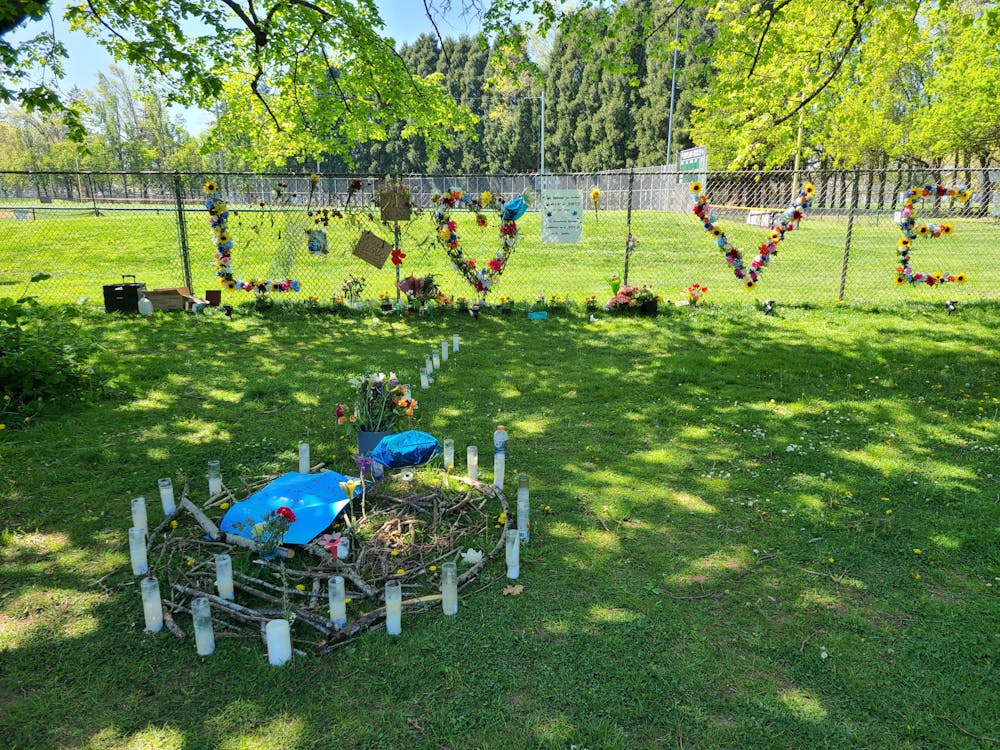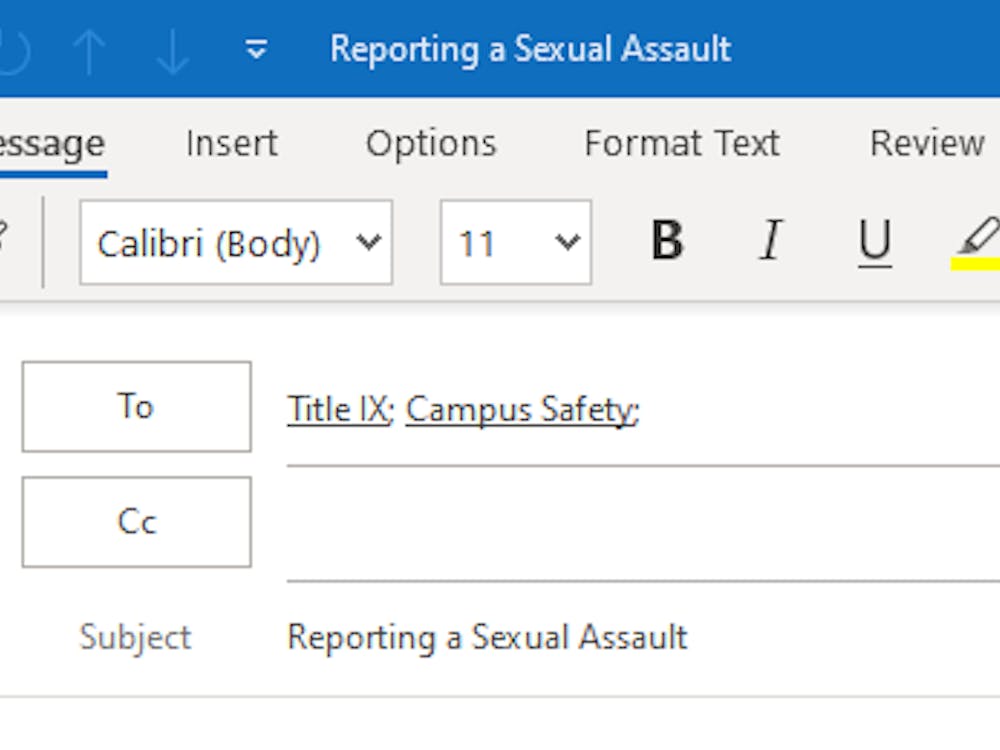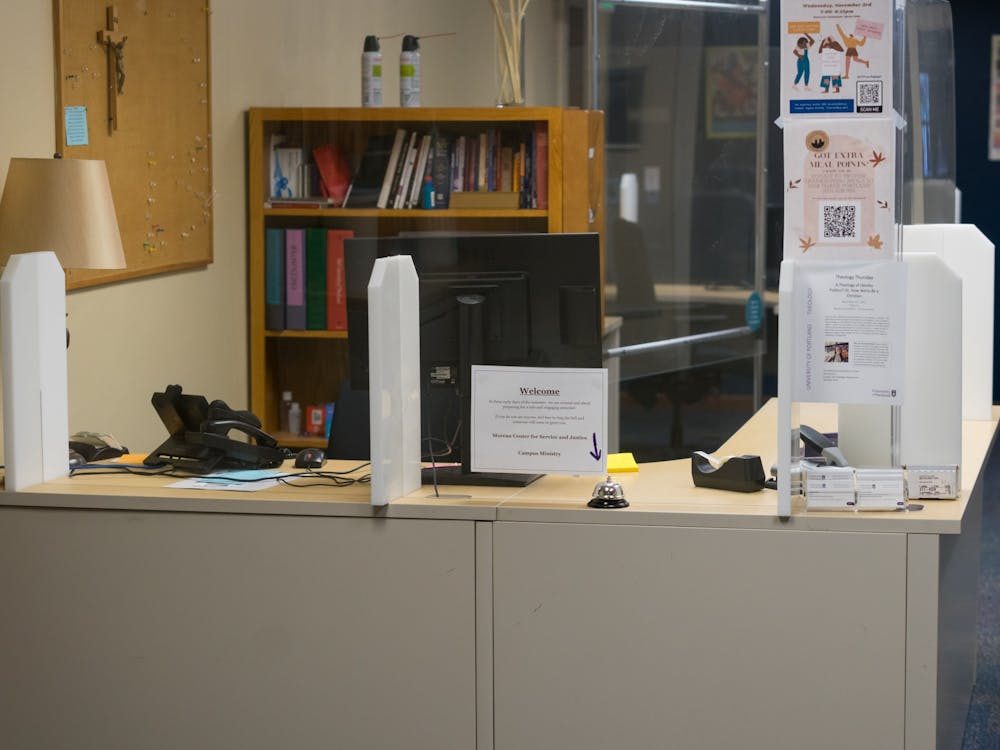As senior nursing and social work major Torrie Webb arrived at her clinical site at Lents Park in Southeast Portland the morning of April 16, she immediately knew something was wrong.
“As soon as we got there, everyone’s noticing at least 10-15 police cars, tape everywhere, and our instructors are saying ‘just letting you know... there was an officer involved shooting about 15 minutes ago’,” Webb said.
The area of Lents Park where Webb’s clinical group usually sets up “home base” for supplies for the Lents Park community was blocked off by police, according to Clinical Liaison Instructor Alicia Printemps-Herget. The group split up as they usually do to check on people in the area, Printemps-Herget said.
“Students came and went as they went to different areas to check on folks,” Printemps-Herget said. “And then we kind of congregated back in the park because there were a lot of community members coming by and talking, people that we know, people that know us, and some of the people we see on a weekly basis. We were trying to figure out how we could offer support.”
Webb’s clinical group had arrived in the Lents Park neighborhood at 10 a.m., roughly 20 minutes after 46-year-old Robert Douglas Delgado was shot and killed by a police officer. Portland police were responding to multiple calls about a man in the park with a gun after 9:30 a.m. Officers confronted Delgado, and after he drew what appeared to be a firearm, he was shot. Investigators later identified the firearm as an orange tipped replica.
“We found out that the man had died,” Webb said. “We went back to Lents. It was a lot more emotional than any of us could have expected to be in a situation like that. I’m surprised our instructors didn’t have us leave. I think a lot of us saw the body. I did.”
The group got there around the same time emergency medics attempted to revive Delgado.
“One of the other people in our clinical showed up, saw people doing CPR on him… and then eventually declaring that he had passed away,” Webb said.
This clinical group has been working in the Lents neighborhood every week this semester, and has fostered a connection to the community that lives there. The clinical site focuses on population health and chronic health, and is part of a partnership between UP and Portland Fire and Rescue’s Community Health Assessment Team (CHAT) according to Printemps-Herget.
“We’ve created relationships with people in this community, in the Lents neighborhood, and I know for a fact that that’s why it hit us so hard,” Webb said. “We know people who knew that man, and we know how scared that whole community is of the police. It was extremely traumatizing for everyone.”
Webb works with two homeless men who had seen Delgado that morning. According to Webb, the two men saw that Delgado was carrying what looked like a firearm, but were not worried for their safety because they did not think the gun was loaded. These two men had witnessed the shooting, according to Webb.
“Me and my friend Damien, and Maria, had kind of a debrief with the men who saw it,” Webb said. “They’ve seen people been killed before, but seeing someone being killed by the police was different for them.”
Webb’s clinical group works with Portland Street Response, a program that was established to offer an unarmed response to people struggling with mental health or drug-induced crises and homelessness. The Oregonian reported that the response team would not be called in this situation because the original call involved a weapon.
This was a challenging day for the group, as discussed in their debrief afterwards, Printemps-Herget said. Despite the traumatic start to the day, the group continued to be there for the community and support them.
“The thing that really stands out to me is how the students really stepped up just to be present for each other and the community,” Printemps-Herget said. “They were able to support very vulnerable folks, and they were able to really support each other. They were able to really embrace their nursing role in responding to a community that had experienced a traumatizing event.”
Delgado was not a stranger to the Lents neighborhood, and many in the area knew him personally according to Webb. Protests were sparked shortly after the shooting, with approximately 100 people gathering at the park.
This shooting comes during a wave of nationwide police violence. From the opening of Derek Chauvin’s testimony on March 29 to April 17, the New York Times reported that at least 64 people had been killed by law enforcement. Half were people of color.
“I think it was pretty incredible at the protest afterward how many people of color were there to really rally for this man in the name of denouncing police violence,” Webb said. “It was a supportive, really diverse, community.”
A memorial was set up for Delgado the night of the shooting, and has been growing since.

A photo of the memorial for Robert Delgado.
Photo courtesy of Alicia Printemps-Herget.
“It was already starting before I left on Friday,” Printemps-Herget said. “People were putting up some cardboard signs, and now I think it’s gradually grown since Friday.”
A vigil was held for Delgado on Friday, April 23. KGW8 reported that Delgado’s family said he was having a mental health crisis when he was killed, and they believe police should have handled it differently. The family is asking Oregon Governor Kate Brown and Attorney General Ellen Rossenblum to appoint a special prosecutor to conduct an independent investigation on the case.
Austin De Dios is the News and Managing Editor of The Beacon. He can be reached at dedios22@up.edu.








